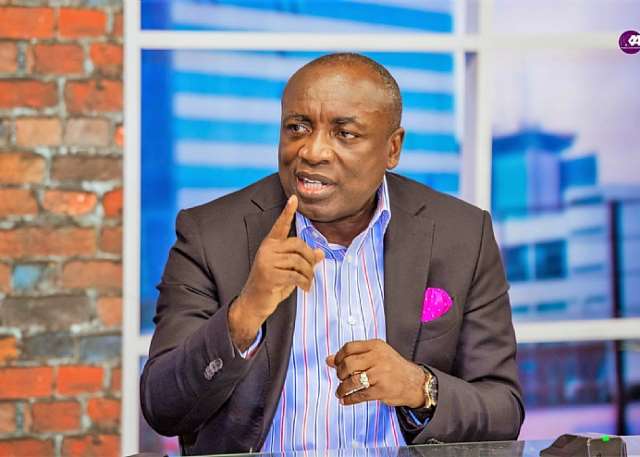Kwabena Agyepong’s call for a national reset resonates deeply within the context of Ghana’s current political landscape. He argues that the nation’s political trajectory has veered dangerously off course, prioritizing personal gain and material wealth over the core principles of honesty, humility, and genuine public service. This shift, he contends, has eroded public trust and created a system where political positions are seen as avenues for self-enrichment rather than opportunities to serve the people. Agyepong’s critique isn’t simply an observation; it’s a passionate plea for a return to the foundational values that underpin a healthy democracy. He believes that a fundamental shift in mindset is required, one that prioritizes the collective good over individual ambition.
The erosion of ethical standards within Ghana’s political sphere is a central theme in Agyepong’s message. He laments the pervasive influence of money in politics, arguing that it has corrupted the system and fostered a culture of materialism. This pursuit of wealth, he suggests, has led many public officials to live beyond their means, creating a breeding ground for corruption and further eroding public trust. He draws a stark contrast between this current reality and the ideals that should guide public service, emphasizing that true leadership is about serving the people, not exploiting them for personal gain. His critique highlights the urgent need for greater transparency and accountability within the political system to combat the corrosive effects of unchecked materialism.
Agyepong’s call for a new generation of leaders is not simply a generational shift; it’s a call for a paradigm shift. He envisions leaders who are grounded in empathy, who understand the struggles of ordinary Ghanaians, and who are driven by a genuine desire to serve. This new breed of politician, he argues, should be defined by their commitment to the public good, not by their personal wealth or political connections. He believes that this change is essential to restoring public faith in the political process and ensuring that the government truly represents the interests of the people. His vision necessitates a move away from the current climate of self-serving politics towards a more ethical and people-centered approach.
By sharing his own experiences with hardship and perseverance, Agyepong adds a personal dimension to his call for change. He uses his own journey as an example of how resilience and a commitment to principles can shape one’s approach to public service. This personal narrative serves to underscore his message of authenticity and dedication, emphasizing that true leadership is forged through experience and a deep understanding of the challenges faced by the people. His story is not just a biographical detail; it’s a testament to the values he believes are essential for effective and ethical leadership.
Agyepong’s critique of the current political climate comes at a crucial juncture in Ghana’s history. Public disillusionment with political leadership is growing, and there is a palpable sense of urgency for change. His words resonate with many who feel that the political system has become detached from the needs of the people. This growing discontent underscores the importance of his message and the need for a fundamental reassessment of the values that guide political action. His call for a reset is not just a criticism; it’s a call to action, urging both his own party and the broader political class to embrace a more ethical and responsible approach to governance.
In essence, Kwabena Agyepong’s message is a powerful call for a return to the fundamental principles that should guide public service. He urges a shift away from the current culture of materialism and self-enrichment towards a renewed focus on honesty, humility, and genuine service to the people. His vision for a new generation of leaders, grounded in empathy and driven by a commitment to the public good, offers a pathway towards restoring public trust and rebuilding faith in the political process. His call for a national reset is not just a critique of the current system; it’s a blueprint for a more ethical and effective form of governance in Ghana.


